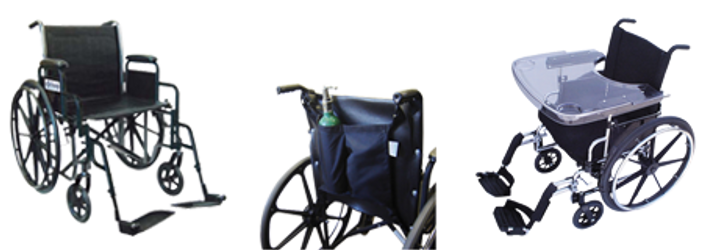The Transformative Role of Wheelchairs in Healthcare
Wheelchairs have long been an indispensable asset in the healthcare industry, offering critical mobility and independence to millions worldwide. From their basic manual designs to advanced electric models, wheelchairs serve as essential tools for individuals with mobility impairments, significantly enhancing their quality of life and integrating them more fully into society. This article explores the various benefits wheelchairs provide in the healthcare sector, highlighting their impact on patient independence, rehabilitation, psychological well-being, and healthcare efficiency.
Enhancing Mobility and Independence
The primary benefit of wheelchairs is the mobility they afford users. For individuals with spinal cord injuries, muscular dystrophy, multiple sclerosis, arthritis, or other conditions that impair walking, wheelchairs offer the freedom to move independently. This mobility is crucial for accessing various environments, whether at home, in public spaces, or within healthcare facilities. By enabling users to move freely, wheelchairs significantly reduce dependence on caregivers, promoting a sense of autonomy and self-reliance.
Facilitating Rehabilitation and Recovery
In rehabilitation settings, wheelchairs are vital for patients recovering from surgeries, strokes, or injuries. They allow patients to engage in physical therapy by providing a means to move safely and comfortably. Modern wheelchairs are often designed with adjustable features that support proper posture and reduce the risk of pressure sores, which is crucial during long periods of rehabilitation. Moreover, wheelchairs equipped with additional functionalities, such as tilt-in-space or recline features, can aid in the redistribution of weight and reduction of pressure points, facilitating the healing process.
Psychological and Social Benefits
The psychological benefits of using a wheelchair are substantial. Mobility impairments can lead to feelings of isolation and depression due to limited access to social interactions and activities. Wheelchairs help mitigate these effects by enabling users to participate in social, recreational, and occupational activities. This inclusion promotes mental health and emotional well-being by fostering a sense of normalcy and inclusion. Additionally, being able to perform daily tasks independently can boost self-esteem and confidence, which are critical components of mental health.
Improving Healthcare Efficiency
For healthcare providers, wheelchairs enhance the efficiency of patient care. In hospitals and clinics, wheelchairs facilitate the safe and efficient transport of patients who are unable to walk. This is particularly important in emergency situations, where timely movement can be critical. Furthermore, wheelchairs reduce the physical strain on healthcare workers who might otherwise have to manually lift or carry patients, thereby lowering the risk of work-related injuries.
Advances in Wheelchair Technology
The evolution of wheelchair technology has expanded their benefits even further. Electric wheelchairs, for instance, provide greater independence for users who lack the strength to propel a manual wheelchair. These advanced models often come with features such as joystick controls, adjustable seating, and even connectivity options for smart devices, enhancing the user experience. Additionally, lightweight and foldable wheelchairs offer improved portability, making it easier for users to travel and maintain an active lifestyle.
Accessibility and Customization
Modern wheelchairs are highly customizable to meet the specific needs of each user. Custom seating systems, specialized controls, and tailored dimensions ensure optimal comfort and functionality. This customization is crucial for individuals with unique physical requirements, ensuring that the wheelchair supports their daily activities without causing additional discomfort or health issues.
Economic Impact
While the initial cost of a high-quality wheelchair can be significant, the long-term economic benefits are considerable. By providing mobility and reducing the need for extensive caregiving, wheelchairs can lower the overall cost of care. Insurance coverage and government programs often assist with these expenses, recognizing the long-term savings and improved quality of life that wheelchairs provide.
Wheelchairs play a vital role in the healthcare industry, offering numerous benefits that extend beyond basic mobility. They are critical for enhancing patient independence, aiding in rehabilitation, improving psychological well-being, and increasing the efficiency of healthcare delivery. As technology continues to advance, the functionality and accessibility of wheelchairs will only improve, further cementing their importance in promoting health, inclusion, and quality of life for individuals with mobility impairments.
Related Blog Posts:
Understanding Durable Medical Equipment (DME)
Additional Information:
Strengthening access to appropriate wheelchairs
Recent Posts
-
Acupuncture vs. Dry Needling: What’s the Difference?
At first glance, acupuncture and dry needling might seem identical. Both involve inserting thin need …Jun 11th 2025 -
What Is Dry Needling? A Modern Approach to Pain Relief and Muscle Recovery
Chronic muscle pain, tension, and restricted movement can significantly impact your daily life, sign …Jun 11th 2025 -
The Kinetic Chain and Its Importance?
The kinetic chain is a key principle in physical therapy, referring to the way muscles, joints, and …Apr 18th 2025




